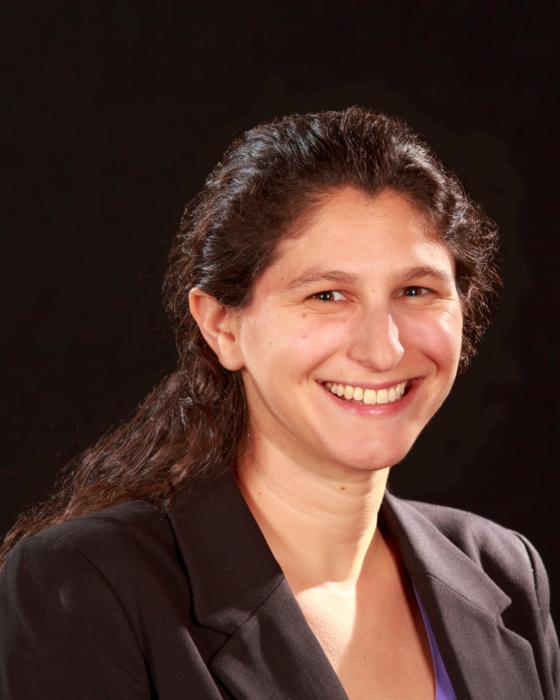East Hanover, NJ – September 3, 2024 – Researchers at Kessler Foundation have published a new clinical protocol examining the combination of aerobic exercise and cognitive rehabilitation to improve learning and memory in individuals with multiple sclerosis (MS) who have mobility disability. The article, “Rationale and methodology for examining the combination of aerobic exercise and cognitive rehabilitation on new learning and memory in persons with multiple sclerosis and mobility disability: Protocol for a randomized controlled trial,” was published online and will appear in print in Contemporary Clinical Trials, Volume 144, September 2024, under Doi: 10.1016/j.cct.2024.107630.
East Hanover, NJ – September 3, 2024 – Researchers at Kessler Foundation have published a new clinical protocol examining the combination of aerobic exercise and cognitive rehabilitation to improve learning and memory in individuals with multiple sclerosis (MS) who have mobility disability. The article, “Rationale and methodology for examining the combination of aerobic exercise and cognitive rehabilitation on new learning and memory in persons with multiple sclerosis and mobility disability: Protocol for a randomized controlled trial,” was published online and will appear in print in Contemporary Clinical Trials, Volume 144, September 2024, under Doi: 10.1016/j.cct.2024.107630.
The study explores a novel combinatory approach to treating cognitive impairments in MS, particularly focusing on new learning and memory deficits. The researchers hypothesize that combining aerobic exercise enhanced by virtual reality (VR) with cognitive rehabilitation, particularly Kessler Foundation-modified Story Memory Technique (KF-mSMT®), will result in broader and more robust cognitive improvements.
Authors of the article include Carly L.A. Wender, PhD; Odalys Arbelaez; Tien T. Tong, PhD; Amber Salter; Glenn R. Wylie, DPhil; Brian M. Sandroff, PhD; Nancy D. Chiaravalloti, PhD, from Kessler Foundation; Robert W. Motl, Department of Kinesiology and Nutrition, University of Illinois Chicago; Amber Salter, Department of Neurology, University of Texas Southwestern.
The article describes the protocol for a Phase I/II, parallel-group, single-blind randomized controlled trial that includes 78 participants with MS and mobility disability in the current trial, COMBINE (Combination Optimizes Memory Based on Imaging and Neuropsychological Endpoints). Participants are randomized to either an aerobic cycling exercise with VR combined with KF-mSMT or a control group receiving stretching and toning exercises combined with KF-mSMT. The primary outcomes measured include various aspects of new learning and memory such as list learning, prose memory, and visuospatial memory, along with neuroimaging outcomes focused on hippocampal structure and function.
“This trial is a significant step forward in our understanding of how multimodal interventions can enhance cognitive outcomes for people with MS,” said Dr. Wender, the study’s lead author and research scientist in the Centers for Multiple Sclerosis Research and Neuropsychology and Neuroscience Research at the Foundation. “By targeting the hippocampus through both cognitive and physical stimuli, we aim to provide more effective treatment options for individuals who face substantial cognitive challenges due to MS,” she added. “Combining exercise with cognitive rehabilitation has the potential to produce synergistic effects, particularly in individuals with greater disease progression,” she concluded.
The study’s methodology and rationale reflect a growing interest in integrated approaches to treating MS-related cognitive impairments, with the potential to significantly impact clinical practices in rehabilitation. This research was supported by a grant from the National Multiple Sclerosis Society, Grant Number RFA-2301-40758.
About Kessler Foundation
Kessler Foundation, a major nonprofit organization in the field of disability, is a global leader in rehabilitation research. Our scientists seek to improve cognition, mobility, and long-term outcomes, including employment, for adults and children with neurological and developmental disabilities of the brain and spinal cord including traumatic brain injury, spinal cord injury, stroke, multiple sclerosis, and autism. Kessler Foundation also leads the nation in funding innovative programs that expand opportunities for employment for people with disabilities. For more information, visit KesslerFoundation.org.
Press Contact at Kessler Foundation:
Deborah Hauss, [email protected]
Stay Connected with Kessler Foundation
X (formerly known as Twitter) | Facebook | YouTube | Instagram | SoundCloud
Journal
Contemporary Clinical Trials
DOI
10.1016/j.cct.2024.107630
Subject of Research
People
Article Title
“Rationale and methodology for examining the combination of aerobic exercise and cognitive rehabilitation on new learning and memory in persons with multiple sclerosis and mobility disability: Protocol for a randomized controlled trial
Article Publication Date
3-Sep-2024





